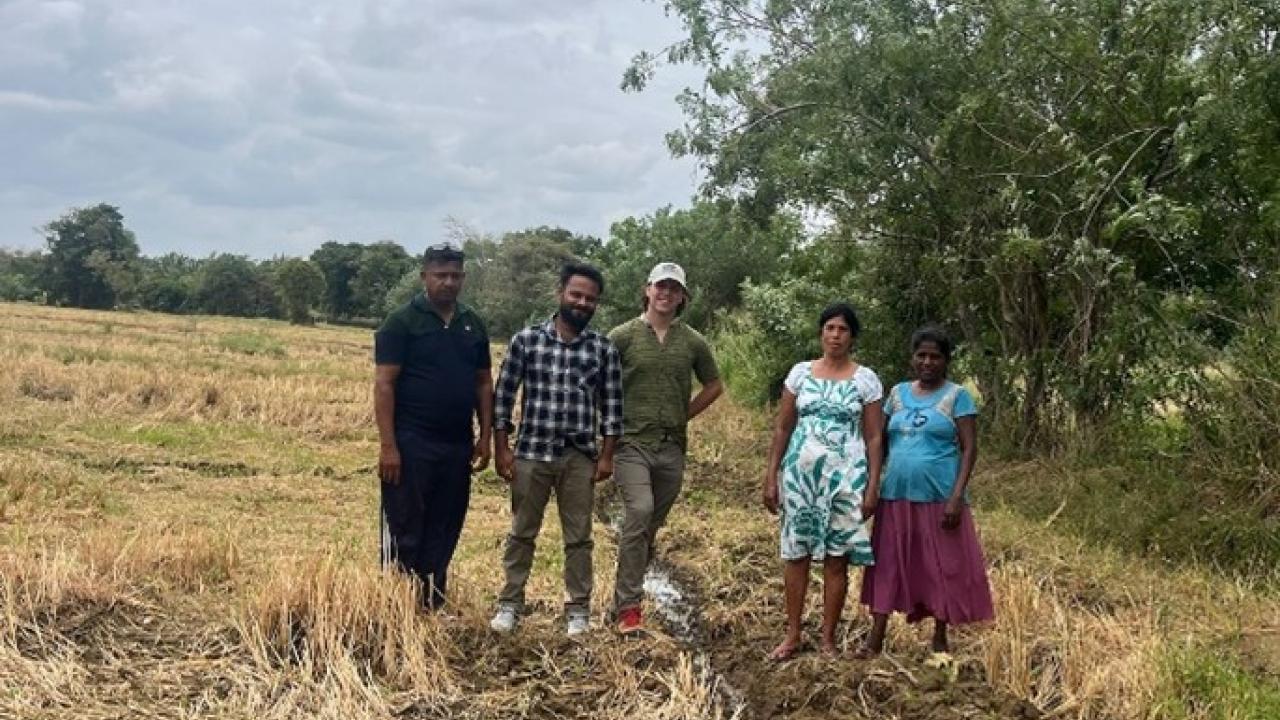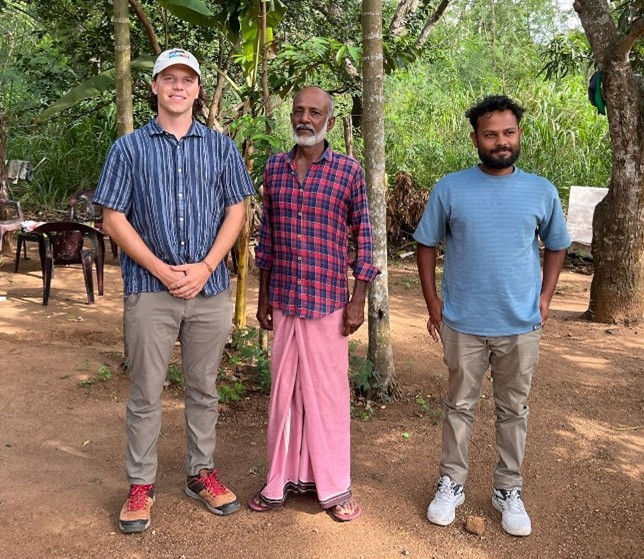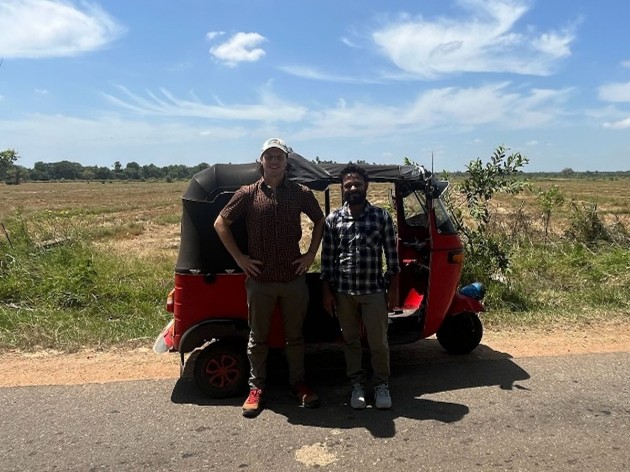
Alexis Heather: Implications for an Organic Future: Investigating Pathways for Sustainable Agricultural Transitions in Sri Lanka
Quick Summary
- In 2021 Sri Lanka became the first modern country to attempt to transition its agriculture sector to 100% organic practices, banning all synthetic fertilizers, pesticides and weedicides.
In 2021 Sri Lanka became the first modern country to attempt to transition its agriculture sector to 100% organic practices, banning all synthetic fertilizers, pesticides and weedicides. It did not go well.
In the growing season following the ban, rice yields plummeted over 30% across Sri Lanka, causing a farmer income and food security crisis. Though the ban on synthetic agrochemicals was rescinded after about six months, many Sri Lankan rice farmers have yet to fully recover their yields. UC Davis International Agricultural Development (IAD) Graduate Student Alexis Heather is interested in understanding how local rice farmer’s practices and perceptions may have influenced their ability to recover yields following Sri Lanka’s short-lived organic mandate, and has developed a multi-method study to explore factors related to farmer yield resiliency for his IAD thesis.

Leveraging UC Davis resources and international collaboration with the University of Peradeniya and the International Rice Research Institute, Alexis has combined satellite remote sensing models and on-the-ground surveys to identify and analyze areas of high versus low yield impact in Sri Lanka’s Anuradhapura District. By comparing remote sensing indices of crop health across multiple years, Alexis’s project has identified areas with indicators of high and low yield resiliency, selecting sites for further on-the-ground investigation of farmer practices and sentiments.

Currently, Alexis is in the field, interviewing rice farmers and key agricultural stakeholders in regions of identified high versus low resiliency. He hopes that the data and analysis from his UC Davis thesis project will provide valuable insight for farmers and governments hoping to foster sustainable agricultural transitions in Sri Lanka, and across the world.